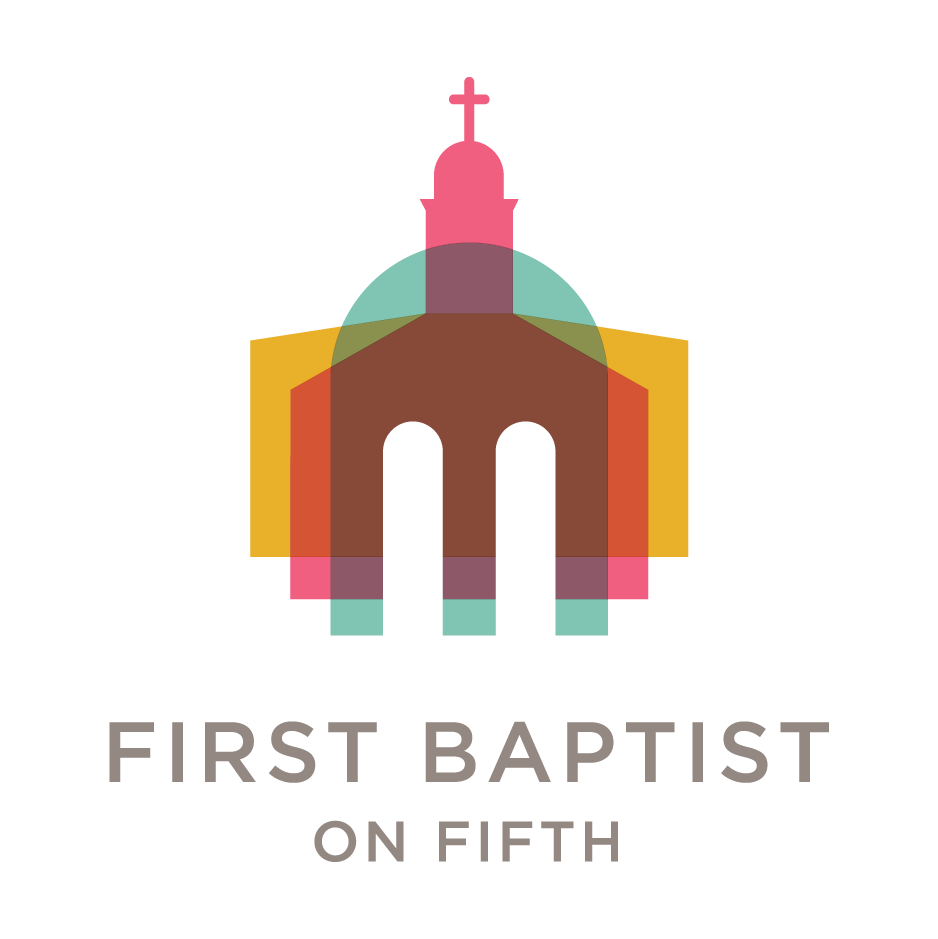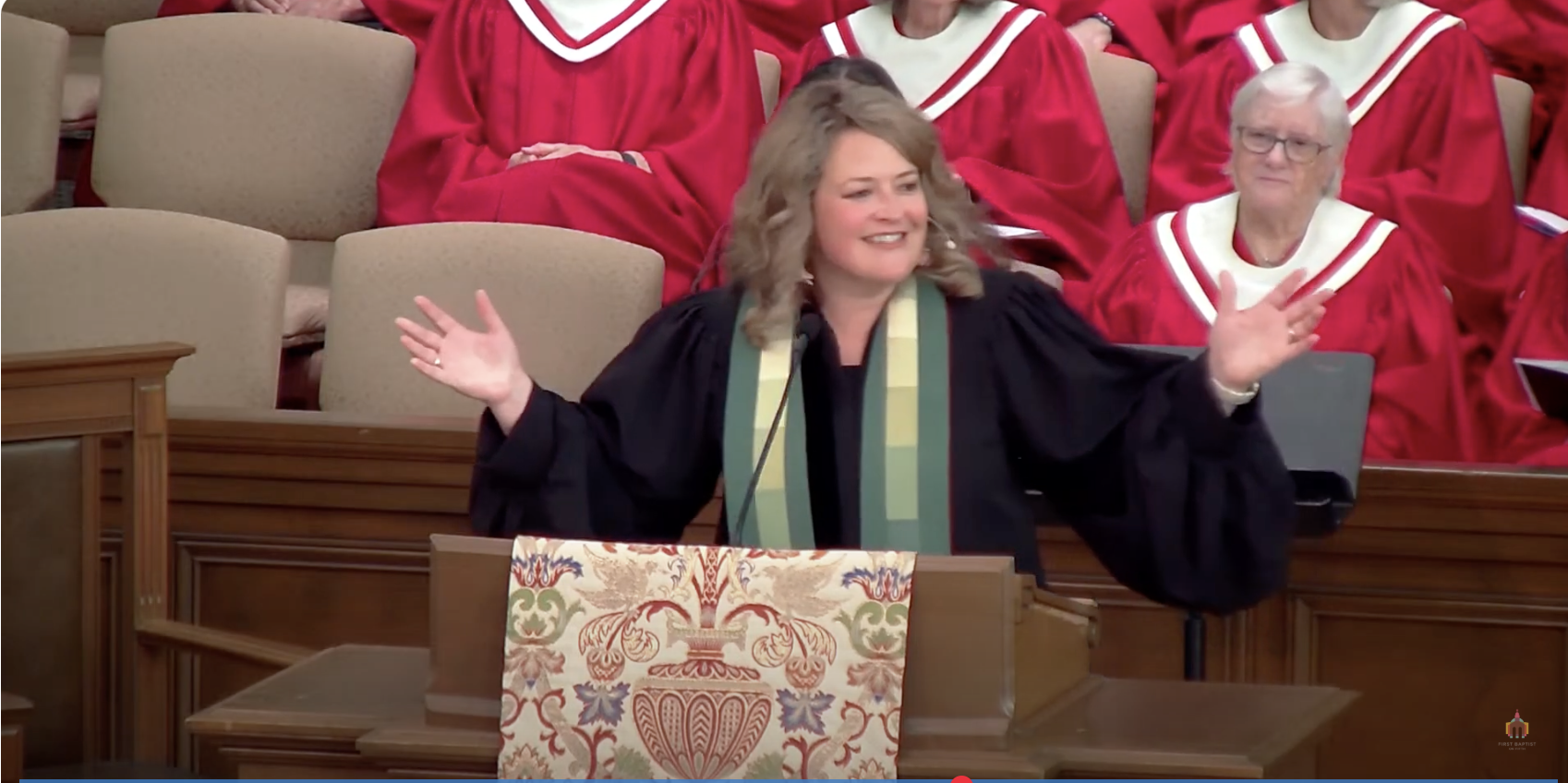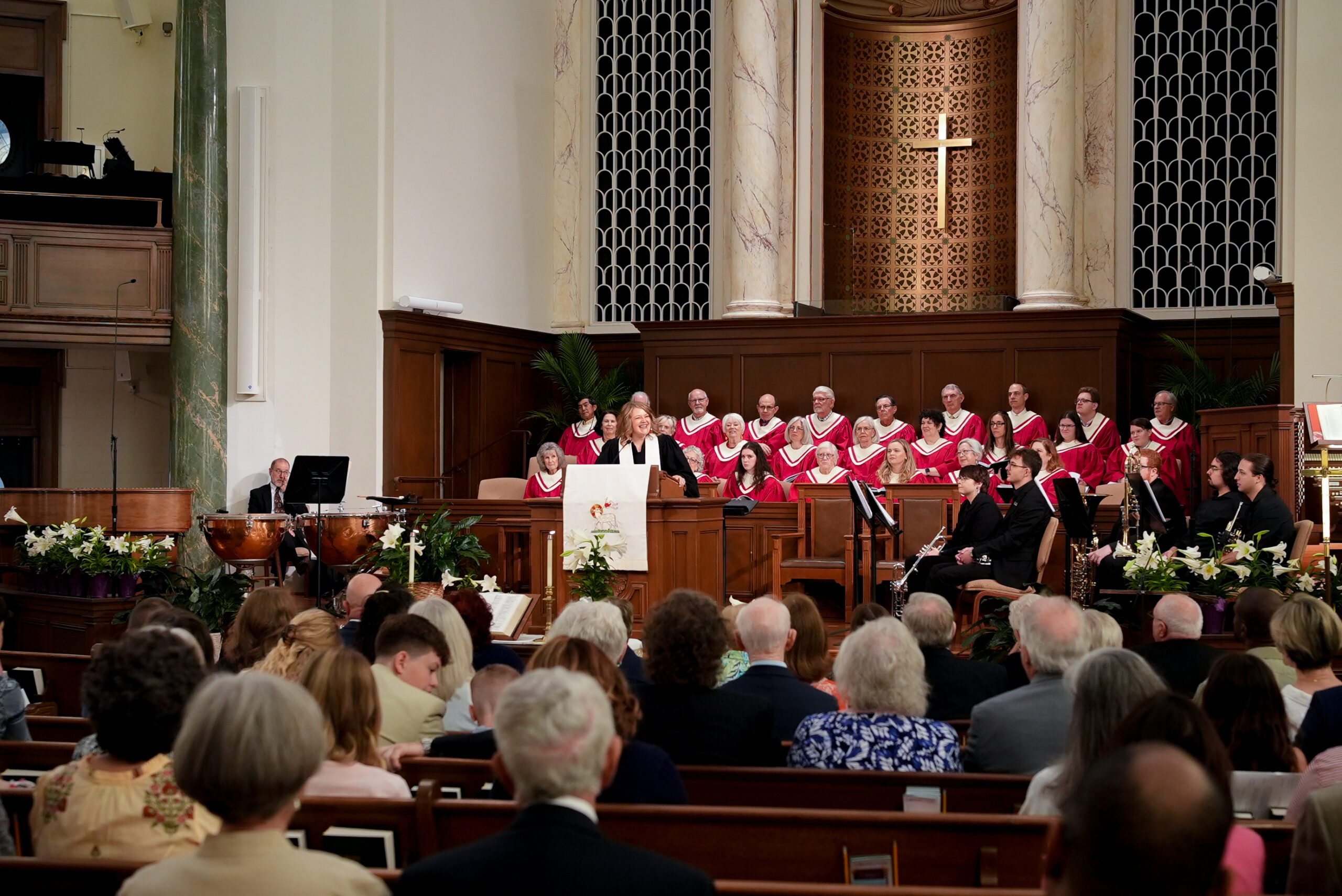I“For Christians,” Frederick Buechner says, “to observe the forty days of
Lent is to tithe for a holy use roughly a tenth of each year’s days.” Connecting
the dots between Jesus’ forty days spent in the wilderness, “discovering what
it means to be Jesus,” Buechner continues: “during Lent, Christians are
supposed to ask one way or another what it means to be themselves.”
For example, he continues:
“If you had to bet everything you have on whether there is a God or
whether there isn’t, which side would get your money and why?
Of all the things you have done in your life, which is the one you would
most like to undo? Which is the one that makes you happiest to remember?
Is there any person in the world or any cause that, if circumstances
called for it, you would be willing to die for?”
(There are more questions he names, but this is a good sample.)
“To hear yourself try to answer questions like these,” Buechner
summarizes, “is to begin to hear something not only of who you are, but of
both what you are becoming and what you are failing to become. It can be a
pretty depressing business all in all, but if sackcloth and ashes are at the start
of it, something like Easter may be at the end.” 1
IILent is when Christians “discover what it means to be themselves,”
Buechner says, who we are and who we are becoming, both when we fail and
when we rise. In Lent, we discover what’s right at the heart of it all. In part, that’s why we trade our colorful garments for ones more spare, our tables
filled with basins and branches and burlap to remind us of what exists when
all is stripped away. On Ash Wednesday, we gathered here last to begin the
season with a reminder: “from dust you are, and to dust you shall return,” we
heard, a smear of ashes on our foreheads to remind us of our fragility and
finitude.
Jesus’ words from the Sermon on the Mount were our guide at Lent’s
beginning, calls to the interior disciplines of the faith, ones that center God,
offered from the very intimacy of the human heart. We pick right back up
where we left off in Matthew 6, then, with continued instruction from Jesus
today about prayer and fasting, what we do with what we have and what we
see along the way.
III“When you pray,” Jesus begins in today’s passage, “don’t heap up empty
words,” not suggesting a certain length of prayers, but rather a tenor of them.
Prayer is not the place for flattery or showing off, Jesus is saying – not for
you, not for each other, not for God. Later, he says, “when you fast, don’t look
dismal to gain others’ pity, but wash your face and place oil on your head and
do this for God.” It’s God we’re talking to here – not some foreign entity, but
God, our creator, our holy parent, one to whom we can and should bring the
deepest intimacies of our hearts because God already knows them. God is no
stranger to us, therefore in our inner life, we should not act like strangers to
God. Prayer is a time for honesty and cultivating the relationship we share.
But Jesus knows that perhaps we need help when talking to God, and
offers a template for our prayers that time and tradition has come to call “the
Lord’s Prayer.” It’s like the old Jewish story of the little boy who comes to the synagogue to recite over and over again the first three letters of the Hebrew
alphabet: aleph, bet, gimel; aleph, bet, gimel. The rabbi there overhears and
smiles, asking the boy, “what are you doing?” To which the little boy responds,
“I don’t know the prayers and I can’t read, but if I just say the letters, God puts
the prayer together for me.” 2 I sometimes think of the Lord’s Prayer like that –
when we don’t know what to pray, or when we find ourselves at a loss for
words, here is what we might offer and God can handle the rest.
As we take the prayer piece by piece, let’s note a few things about it.
Scholars remind us that there is no piece of the New Testament that is better
known or more influenced Christian devotion than that of the Lord’s Prayer. 3
It’s a prayer of six petitions – three about God, three about us. Over the
years, it is the King James Version translation of this text that has entered the
common rhythm of our worship. So let’s walk through it, piece by piece.
Our Father – not just my father – meaning, “Father of us all.” One
writer says that this use of ‘our’ reminds us that “you may certainly pray [the
Lord’s Prayer alone, but you are never alone when you pray it.” 4 Our abba,
Jesus prayed, using that intimate, simple word for father that children would
have used, similarly to how we use “daddy” or “papa” in English. 5
Who art in heaven – who, even as near and close father, has also
transcended time and space, no longer contained in a particular location or
confined behind any walls humanity constructs to capture the divine within.
Hallowed be your name – holy and only are you, God. You don’t just
belong to one nation, one church, one ethnicity, one ideology. Your name
doesn’t just rubber stamp our causes. 6 God is above and beyond, God’s name, honor, reputation, identity, character are what we call holy.
Your kingdom come – God’s dream, God’s vision, God’s empire, God’s
reign, God’s world order is what we long to orient here, now. Here, we’re
saying, “God, rearrange the whole power structure of earth, and do it as soon
as possible no matter how much upheaval it may cause.” 7
Your will be done on earth as it is in heaven – God’s will or purpose –
be done, not just be known or understood. Not “my will be done,” but “thy will
be done.” Be done, be fulfilled, be made real in our lives. Your will be done –
where? — on earth! On earth as it is in heaven. All throughout the prayer,
we’ve located much of our imagination towards heaven, but now we’re back
to the location of our real, lived lives. One scholar says, “it is God’s heavenly
will that is to be done, but it is on earth that it is to be accomplished.” 8 One of
the most meaningful sermons I’ve ever heard on the Lord’s Prayer was from
my former pastor, Joe, who designed an entire sermon around the pregnant
pause in congregational prayer between “your will be done” and “on earth as
it is in heaven,” calling our congregation to eliminate that pause in the living of
our very lives. In it, he reminded us that we’re asking not only that God’s will
be done, but that it be done on earth! After that, our church stopped pausing
there when we said the prayer together in worship, and that practice has
stuck with me ever since.
Give us this day our daily bread. We’re not praying for riches or power
or authority to have and hold from this day forward! We’re not praying for
bread to freeze or multiply, bread to hoard or hide. No, we’re praying for
enough sustenance, enough manna, enough bread for today.
Forgive us our trespasses as we forgive those who trespass against us.
In the Christian life, forgiveness isn’t a matter of bookkeeping, a list of wrongs
to tally and attend, but rather the living, breathing experience of the
Christian life. Perhaps the very best way to flesh out this part of the prayer is
to tell a brief story.
Word got out that a little Filipino girl had talked to Jesus. Her village
was all up in arms about it, and word spread from village to village, all the way
to the cardinal’s palace in Manila, who sent a monsignor out to investigate.
For three separate interviews, this little girl, summoned to the palace for the
events, confounded the monsignor. “I just don’t know whether you’re for real
or not,” he exclaimed, frustrated. “But there is one acid test,” he realized.
“Next time you talk to Jesus, ask him what I confessed at my last confession.”
The little girl agreed.
She returned the following week to find an anxious monsignor, who
asked immediately, “well, my dear, did you talk to Jesus this past week?” “Yes,
your holiness,” she replied. “And did you remember to ask what I confessed in
my last confession?” “Yes, your holiness, I did,” she replied.
“Well,” he asked, his eagerness barely concealed, “when you asked
Jesus what I confessed at my last confession, what did Jesus answer?”
The little girl immediately responded, “Jesus said, ‘I’ve forgotten.’” 9
Forgotten, forgiven. In our honesty to God, our acknowledgement of all
we’ve done and left undone, the trespasses and debts we make to God, and
those we make to each other are forgiven. And we are free.
And lead us notinto temptation. Or “do not bring us to the time of
trial,” as the NRSV says. Is this referring to daily temptations we encounter or
the final judgment or trial of the world? Yes, likely both.
But deliver us from evil. Or “rescue us from the evil one.” Because God
has given humans the freedom to make choices – often times hard choices
between opposing things – we acknowledge that “there’s no way to choose
the good without rejecting the temptation to do evil.” 10
For thine is the kingdom, and the power, and the glory forever, amen.
I’m including these words here, even though they were a later addition to the
prayer and aren’t in Matthew’s original gospel. Likely added by the earliest
Christians as they prayed together in worship as sort of a final coda or
flourish, we find encouragement from their witness to God. Yours is – thine is
– meaning, not Caesar’s is – the kingdom, power, and glory, from age to age.
Amen!, meaning, let it be so!
In the Lord’s Prayer, Jesus invites us to summon heaven to earth, to lift
the future into the present, to pray the new day into today.11 Praying a prayer
like this should help us not store up treasures here on earth, putting our heart
in that which rusts and breaks and goes missing and robs us of the locus of
our highest attention. Rather, we’re to take those things out of our heart to
better let God take up space there instead. We’re to place our eye on the
light, and let God in Christ direct its gaze.
IVFriends, these words on prayer and fasting, on riches and radiance, all
point to what’s at the heart of it all, and that’s the relationships we carry. Our
relationship to God, our relationship to self, our relationships with each
other, our relationships with the world around us, our relationship to time
and space, to heaven and earth, to grace and mercy, to what has been and
what will be. And Lent, as Buechner reminds us, is a season to take stock of it
all, to ask one way or another what it means to be ourselves. We do not exist
outside of the relationships we share, and these words from the Sermon on
the Mount point to that very truth.
So as we begin this holy season of taking stock and discovering anew,
may I offer us some encouragement for the way –
Say the Lord’s Prayer every day, and see how it changes you. Maybe
leave out the pregnant pause. And while you’re at it, tell God something
vulnerable and honest every day. Find something in your life whose
preparation occupies too much of your mind, and trade its daily practice for
trust in God to provide the daily bread you’ll need instead. Think of a person
in your life you need to forgive, work toward that forgiveness, and ask God to
relieve you of the debt this anger is charging to your spiritual life. Look at
your budget, your expense sheet, your bank account with a post-it note right
above it that says, “where your treasure is, there your heart will be also.” And
as I said on Wednesday, practice saying aloud to yourself every day, “I am
God’s beloved. I am God’s beloved! Therefore, I’m passing on this sweet, or
that beer, or this passive aggressiveness, or that gossip, or this habit, or that
desire, or this obsessive worry, or that fearful action – not because I’m trying
to be good, but because I already am good. God told me so. I am God’s
beloved, and I’m going to trust that and treat myself that way, shape the rhythms and practices of my day out of that truth. Or put rather simply,
prioritize your relationship with God this Lent.
I wonder if such practices will shape a forty-day season of discovery –
of self, of life, of God – such that in the end, as Buechner says, life itself is
grace. Sure sounds like Easter to me.
Let all the people say… Amen!




